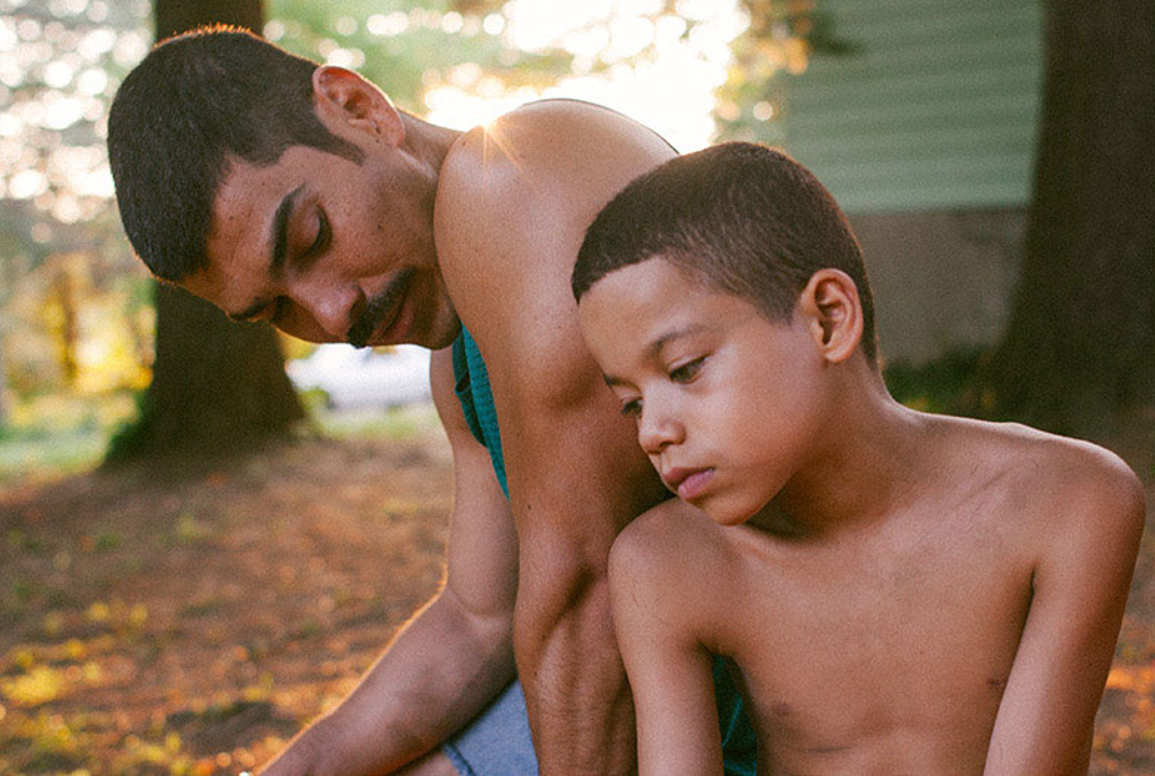It wouldn’t be a Malick homage without ethereal sense memory, and this is Zagar’s greatest talent. We the Animals is a tactile film such that one can almost smell the air of the family’s house. The brothers play a game called ‘Body Heat’ where they huddle together under a blanket, chanting the game’s name and warming each other up. It’s an evocative and lived-in detail that works every time it comes up. If part of cinematic sense memory is the witnessing of a moment when a character is imprinting on a specific feeling, then the betrayals ring out as loud as the intimacies. A sequence of dad teaching Jonah to swim is masterful, where the father is carrying his son in his arms in a lake, and then abruptly dropping him to force him to support himself. That presence followed by a surprise absence is succinct in a way that the scene contains no dialogue, outside of the giant fight it provokes in mom and dad when the family gets back home. Zagar packs We the Animals with scenes just like these, such that the meta picture of the film could be an adult Jonah reminiscing on his childhood and filtering out the instances he remembers the clearest.
The frayed relationship between Jonah’s parents never moves from his eyes and perception to theirs, and it takes up a good portion of his mental real estate. Mom works in a bottling plant and dad does overnight security, jobs that pay the bills but only when both are in play. Jonah experiences the family’s finances through the absence of one of those incomes and the hurting it puts on the cupboards and the fridge, in addition to witnessing the despair of poverty, or dangling on its precipice, in the strain it puts on his parents. The boys can live in the immediate, but the parents have to consider the future’s tenuousness and compromise. Given her druthers, mom might get rid of dad altogether when he erupts in violence, but then, she needs him and his income in the house, so her personal safety is exchanged for economic security. Castillo plays the role with enough charisma to not make this a wholly hateful decision, but his return lingers like a sickly sweet fog in the house, an ostensible good that has been transmuted into something darker.
The style of We the Animals has been locked down since Days of Heaven in the late 70’s, if not earlier, and future imitators get by on the strength or meaning found in the margins. Zagar includes many visceral moments and makes the film into a worthy imitator, though he’s not as strong when exploring Jonah’s burgeoning sexuality and occasionally loses Jonah’s voice in the narration. This is a promising debut that finds new ways into a tried-and-true cinematic path, and one that hopefully prompts more from Zagar instead of less. B

 RSS Feed
RSS Feed